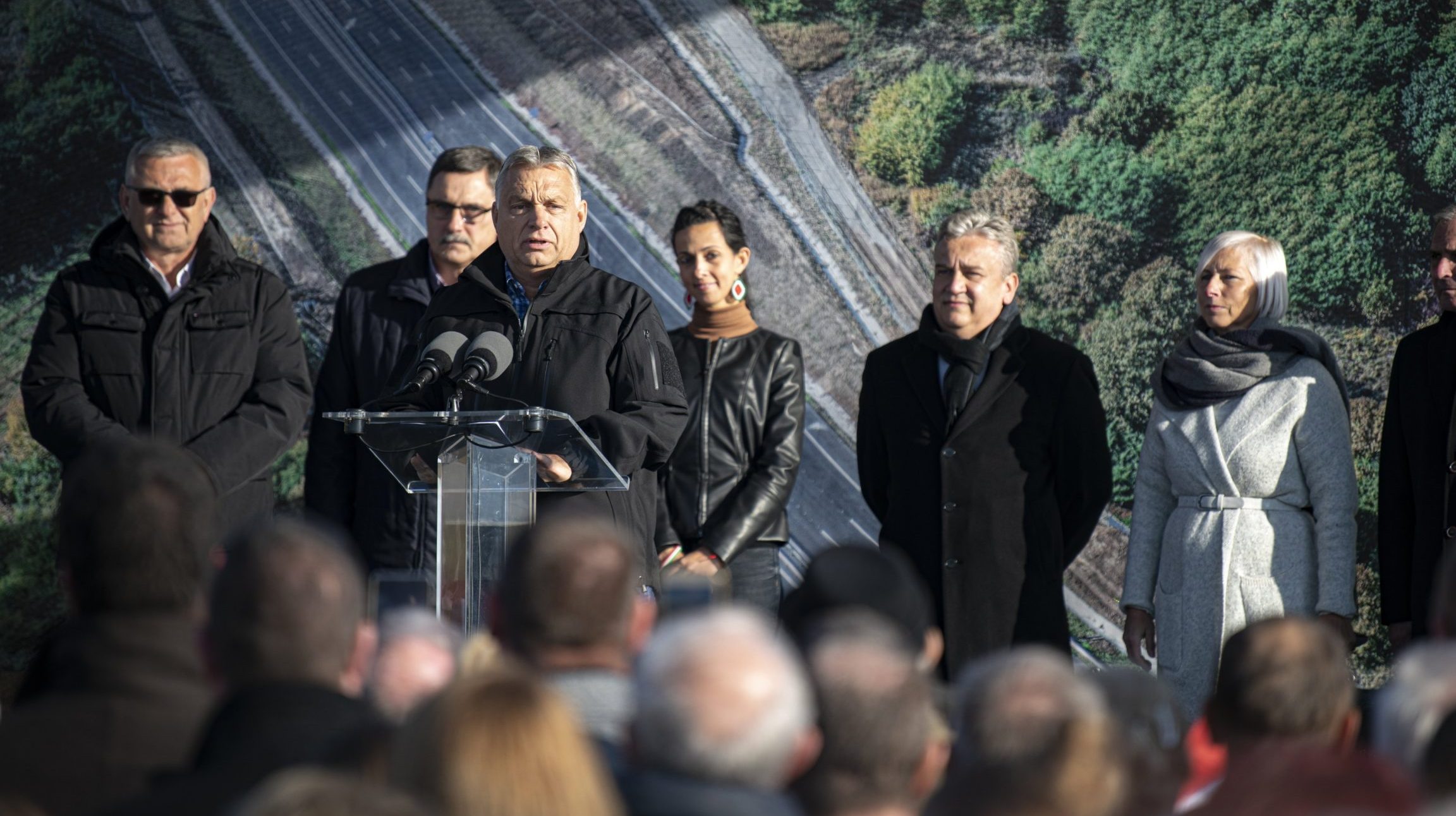

At the inauguration of the M30 express road connecting together Miskolc and Kassa (Kosice), the Prime Minister highlighted that if there is Central European cooperation, then the Hungarian countryside, too, can find advancement.
What we want “is not just a thriving rural Hungary, but also a strong Central Europe” which is strong enough to defend itself against unnatural interventions whose consequences one can feel to this day, he said.
He stressed that in order for this goal to be realised, we must build roads that connect the different parts of the countryside together, take people from the countryside to the big city, and connect together the Hungarians of the motherland, the Hungarians living beyond the borders and the peoples of the region. The road now inaugurated, too, serves that purpose, he pointed out.
Mr Orbán said there was a time when Kassa was the main hub of trade in the direction of Poland; this was a very important route, and allowed the operation of a significant international trade route without the need to cross the capital. We post-Trianon Hungarians find it difficult to imagine this, he added.
The Prime Minister took the view that we must reorient our way of thinking in order to realise that we are about to enter an era when routes should be designed not with Budapest as their starting point. Instead, there are old natural, integral units that should be connected together.
The Prime Minister said this was once a flourishing region until it was torn into pieces by the great powers after the end of World War I. It is the mission of our generation to seek to connect together that which foreigners and the great powers tore into pieces, he said, adding that if we fail to do so, then we will not be able to make the most of the natural advantageous features of the Hungarian countryside.
He stressed, however, that wherever we go, we find borders, and so the Hungarian countryside can only find advancement if we are able to connect together the areas and regions now belonging to different states. This means that the development of the Hungarian countryside is inconceivable without realising the notion of Central European unity, he said.
Mr Orbán recalled that in 2010 they set three goals for themselves. The first one was to connect every county-ranked city to the network of express roads and motorways. The second goal was to enable every citizen of Hungary – whichever small settlement they may live in – to reach the network of express roads within maximum thirty minutes of where they live. The third goal was for all express roads and motorways to reach the state border, and to connect Hungary to its neighbours, he listed.
He highlighted that they have mobilised enormous resources and a very large sum of money in order to attain these objectives. Since May 2010, they have inaugurated 33 motorway and other express road sections totalling 600 kilometres in length. There are now only three county-ranked cities left which are not directly connected to the network of express motorways; in 2010, there were as many as 9, he recalled, observing that construction works are under way also in the case of the three cities concerned: Zalaegerszeg, Kaposvár and Békéscsaba.
Eighty-seven per cent of Hungarians, he continued, are able to join the network of express roads within 30 minutes; in 2010, only 60 per cent had such swift access to the network. As regards roads reaching the borders, before 2010, only three express roads reached the state border, while today as many as nine do, while by 2025 eleven express roads will lead to the borders, he said.
The Prime Minister also mentioned that the project now inaugurated will shorten travel from Kassa to Miskolc by half an hour, and that the project cost HUF 200 billion. Between 2014 and 2020, HUF 700 billion has been channelled to the county, and if the incumbent government parties win the next elections, this number will pale in comparison with the developments that will be implemented here, he said.
He took the view that thanks to the road now inaugurated, it will be easier for capital and goods to flow to this area, and it will also be easier for tourists to access the region.
Mr Orbán stressed that no one knows what will happen in the world, the situation is rather chaotic everywhere, and as Hungary is unable to meaningfully influence the game of the largest nations, the only safe thing we can do – that makes sense and is useful for us – is to build and strengthen Central Europe. With developments like this, borders will only be political facts, and everyday life can go on undisturbed, he explained, adding that this is in the best interests not only of the Hungarian people, but equally in the best interests of the other peoples in the region.
He said with the inauguration of this road, they have taken an important step both for the development of rural Hungary and the strengthening of Central Europe.


